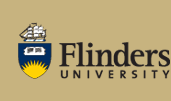The Master of Teaching (Early Childhood) is a pre-service teacher education course which requires two years of study (or the equivalent part-time). The course is offered by the Faculty of Education, Humanities and Law.
Admission requirements
Applicants must have completed an appropriate undergraduate degree or approved equivalent. Limited credit may be granted for topics taken at the University or other institutions.
Course aims
The course aims to produce graduates who:
- reflect critically on different teaching theories and practices, in order to co-construct inclusive and intellectually challenging curriculum for children birth to age 8
- form and sustain effective relationships with children, colleagues, parents and community members
- use educational theory, knowledge and understanding of complex contemporary issues to make informed and ethical professional judgments in diverse early childhood settings
- achieve the knowledge and understanding needed to work as part of a multi-disciplinary team teaching children from birth to eight years of age in a range of community settings
- appreciate the need for continuing professional development through a variety of pathways including research
- actively promote and support policies and practices that take account of social and individual differences and ensure that all children learn and develop
- demonstrate a commitment to social justice in our democratic society, acting powerfully in their centres, classrooms, schools and communities
- use an effective repertoire of information and communication technologies.
Learning outcomes
It is anticipated that on completion of the Master of Teaching program graduate students will:
- foreground equity considerations in all facets of their professional work
- relate to children as competent and active social participants within the contexts of their diverse families, local and global environments
- use understandings of how children develop and processes of learning to co-construct inclusive and intellectually challenging curriculum for children birth to age 8
- utilise a range of technologies, pedagogical approaches and techniques that enhance, sustain and extend children&##39;s learning and development from birth to age 8
- enhance the connections between early childhood programs and other services that support the learning and wellbeing of children and communities
- sustain relationships based on trust, respect, integrity, and reciprocity in order to achieve high quality, equitable outcomes for young children, families, colleagues and the wider community
- Work collaboratively and collectively as members of inter-disciplinary teams to ensure that all children have opportunities to access and participate in high quality and inclusive early childhood services
- communicate effectively with a variety of audiences for a range of purposes
- critically analyse the relationship between research, practice and theory as an impetus for transformational, innovative and creative work in early childhood education
- recognise the effects of history, culture and politics on their identities and work as professional early childhood educators in a multi-service landscape
- demonstrate a commitment to the scholarship of teaching and learning through a continuous process of reflexive inquiry
- draw on a multi-disciplinary knowledge base to make ethically informed decisions that are in the best interest of children, families and colleagues in partnership with families, lead, negotiate and advocate for socially equitable change.
Credit
Limited credit may be granted for recognition of prior studies undertaken at the University or other approved tertiary institutions. Further information is available on this page.
Program of study
To qualify for the Master of Teaching (Early Childhood), a student must complete 72 units of education studies as set out below, with a grade of P or NGP or better in each topic. The course comprises:
- 36 units of undergraduate education topics;
- 36 units of postgraduate education topics.
Except with the permission of the Board:
- no compulsory topic may be taken more than twice;
- teaching practicum topics may not be attempted more than once.
Students should note that teaching practicum topics require full-time commitment for their duration.
Core - Year 1 topics
Select 36 units from:
EDUC2321 The Expressive Arts in Early Childhood (4.5 units)
EDUC2421 Literacy and Numeracy: Birth-4 (4.5 units)
EDUC3622 Thinking and Working Mathematically (4.5 units)
EDUC4724 Science and Design Technology in the Early Years (4.5 units)
EDUC9120 Teachers&##39; Work in a Changing World (4.5 units)
EDUC9123 Connections between Social Development and Early Years Pedagogy (4.5 units)
EDUC9222 Play, Teaching, Learning and Development (4.5 units)
EDUC9231 Professional Experience 1: Early Childhood (25 days) (4.5 units)
Core - Year 2 topics
Select 36 units from:
EDUC3521 Language, Literature and Literacies 4-8 (4.5 units)
EDUC3623 Health and Physical Education in Early Childhood (4.5 units)
EDUC4722 Social and Environmental Education in Early Childhood (4.5 units)
EDUC4740 Professional Experience 2: Early Childhood (35 days) (4.5 units)
EDUC9301 Curriculum and Pedagogy in the Early Years (4.5 units)
EDUC9400 Critical Indigenous Pedagogies (4.5 units)
EDUC9401 The Reflective Professional in Action (4.5 units)
EDUC9402 Engaging Learners in Early Childhood (4.5 units)
